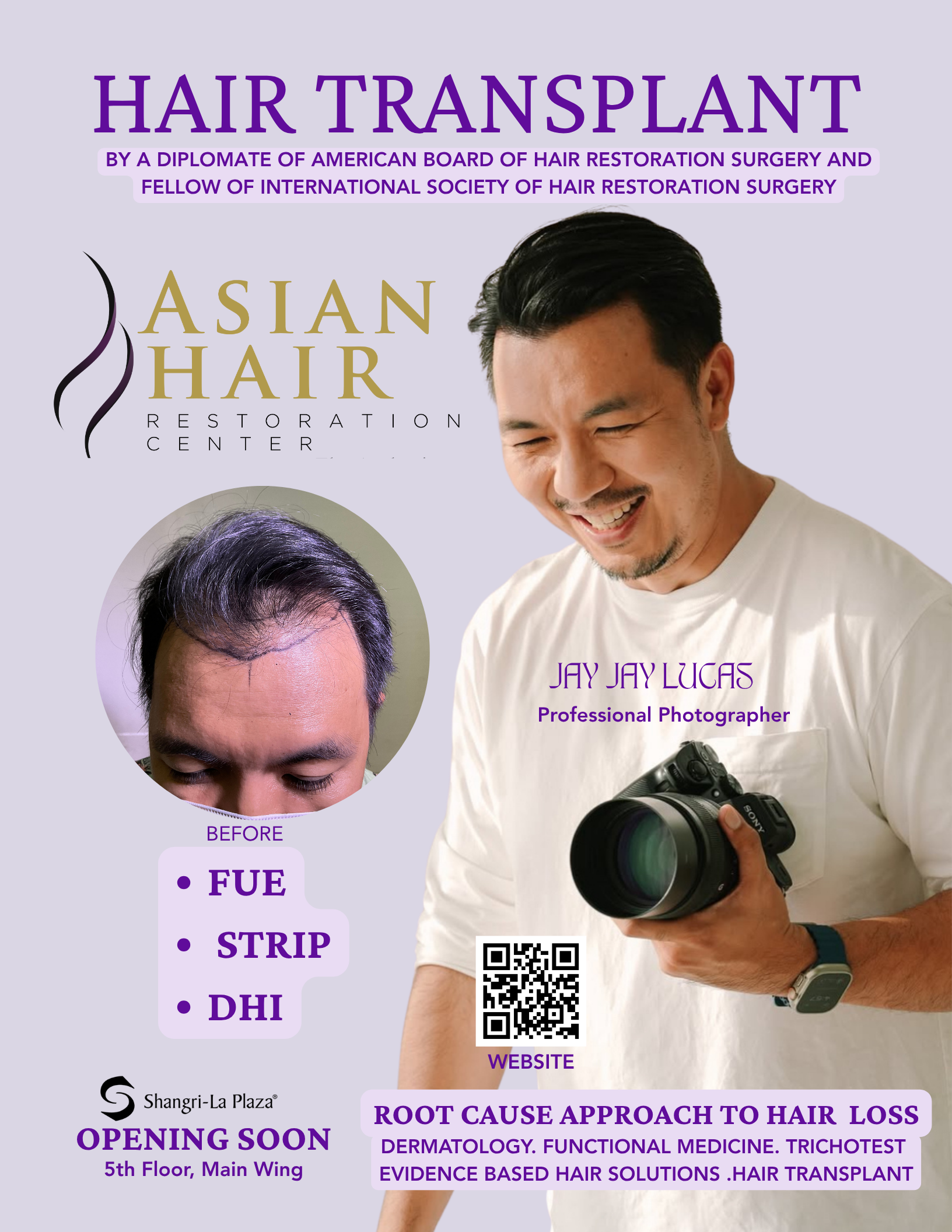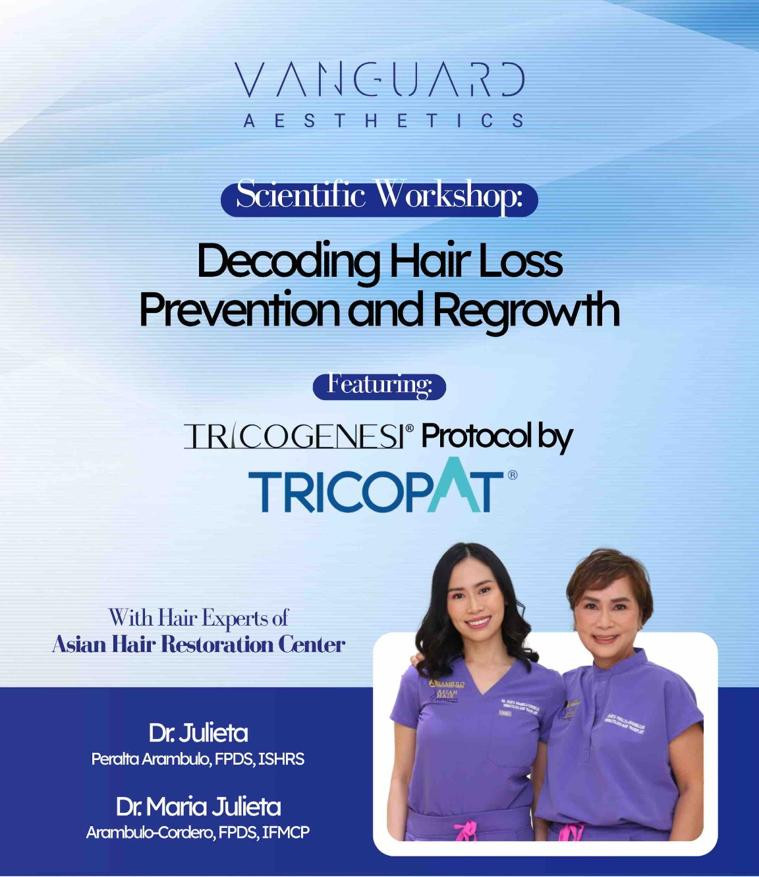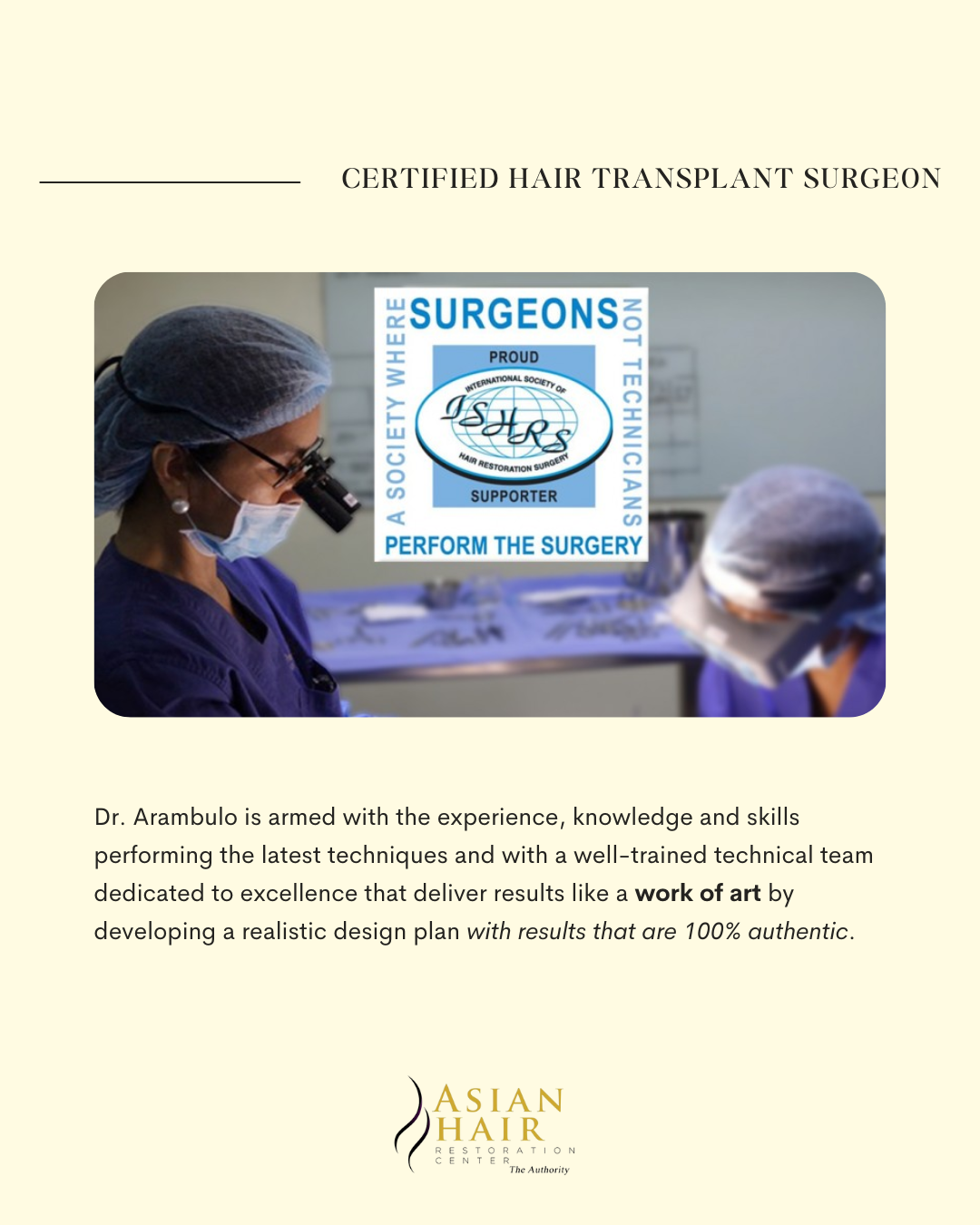Are You a Good Candidate for Hair Transplant?
By Dr. Julieta Peralta Arambulo, ABHRS Diplomate | ISHRS Fellow
Follicular Unit Extraction (FUE) and Follicular Unit Transplantation (FUT) offer renewed hope for many patients struggling with hair loss. But as a hair transplant surgeon with decades of experience, I must emphasize that not everyone is a suitable candidate for the procedure—and that’s not necessarily bad news.
As much as we want to help everyone regain their confidence through hair restoration, your safety and long-term satisfaction come first. At Asian Hair Restoration Center, we practice ethical medicine. We don’t perform procedures just because they’re in demand—we perform them because they’re right for you.
Patient Selection Is Key
According to clinical standards published by the NCBI, hair transplant surgery is appropriate for individuals with:
Pattern hair loss
A healthy and stable donor area
Good general health
Realistic expectations
However, special consideration must be given to younger patients whose pattern of hair loss has not fully evolved. In such cases, early surgery can lead to unpredictable results.
Hair Density and Characteristics
Hair density is an important factor, but it’s not the only one. Patients with low density can still be viable candidates if they have favorable hair characteristics—such as curly or coarse hair, or even salt-and-pepper coloring. These traits can help provide the illusion of fullness post-transplant.
On the Norwood scale, patients in advanced stages (Grades VI–VII) with poor donor density present a significant challenge. While advanced techniques may offer improvement, it is crucial to set proper expectations and proceed with caution.
General Health
Hair transplant surgery—while minimally invasive—is still a medical procedure. Patients with certain systemic health conditions or those with Diffuse Unpatterned Alopecia (DUPA) may not be eligible. DUPA affects the entire scalp, including the traditional donor zones, making graft extraction unreliable.
Managing Expectations
I often tell patients: a successful transplant is not just about regrowing hair—it’s about understanding the journey. You must be prepared to invest financially, emotionally, and physically. Results are not immediate; it can take several months to see noticeable improvement.
Age Matters
While there’s no strict age limit, ideal candidates are typically 30 years old and above, when hair loss patterns are more stable. However, Dr. Arambulo shares that her youngest patient was just 17 years old. In this case, the hair loss was already severe and had significantly impacted the patient’s self-esteem. With careful assessment and ethical consideration, she proceeded with the transplant—but only after thoroughly explaining the long-term implications and ensuring the patient and family had realistic expectations. In younger patients, clear communication and close medical guidance are essential.
In Summary: Trust the Process and Your Physician
Desperation often drives people to seek out cheap, unregulated options—which almost always end in regret. As someone who has spent years correcting botched transplants from black-market clinics, I urge you: choose a qualified, board-certified surgeon.
Your hair restoration journey begins not with surgery, but with an honest medical assessment. If I believe a transplant is not in your best interest, I’ll say so—because your well-being will always come before any procedure.
At AHRC, we believe in results rooted in ethics. If you're wondering whether a hair transplant is right for you, schedule a consultation with us. Let’s determine the best path forward—together.





Comments
ronin bishop
April 18, 2020 at 6.25 pm Replay
Lorem ipsum dolor sit amet, consectetur adipiscing elit. Nec et ipsum ullamcorper venenatis fringilla. Pretium, purus eu nec vulputate vel habitant egestas.ornare ipsum
Kathryn Murphy
April 18, 2020 at 6.25 pm Replay
Lorem ipsum dolor sit amet, consectetur adipiscing elit. Nec et ipsum ullamcorper venenatis fringilla. Pretium, purus eu nec vulputate vel habitant egestas.ornare ipsum